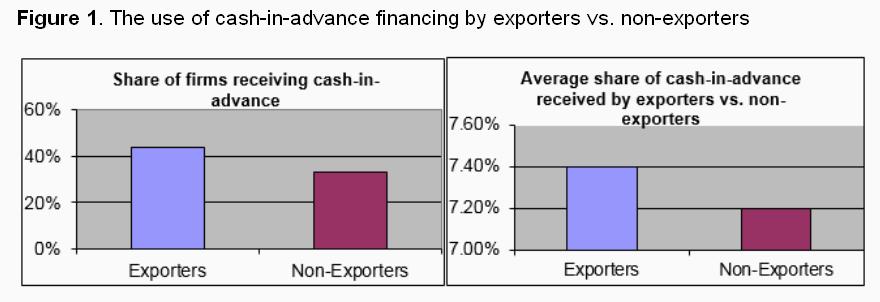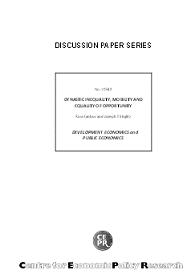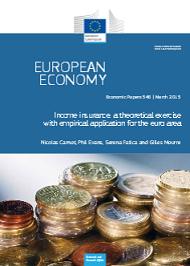Terzi, Alesio, O’ Keeffe, Michael, (2015), “The political economy of financial crisis policy”, Bruegel publications, 8 July Government intervention to stabilise financial systems in times of banking crises ultimately involves political decisions. This paper sheds light on how certain political variables influence policy choices during banking crises and hence have an impact on fiscal outlays. We employ cross-country econometric evidence from all crisis episodes in the period 1970-2011 to examine …Read More
Germany and the Eurozone Crisis: Between Hegemony and Domestic Politics
Βulmer, S., (2014), “Germany and the Eurozone Crisis: Between Hegemony and Domestic Politics”, West European Politics, Vol. 37, Issue 6, pp. 1244-1263. This paper explores Germany’s centrality to the outcome of the eurozone crisis. It argues that the eurozone crisis has led Germany’s ordo-liberal principles to trump its other longstanding commitment – i.e. to European integration. These two principles are explored in order then to shed light on how they …Read More
Varieties of Capitalism and the Euro Crisis
Hall, P. (2014), “Varieties of Capitalism and the Euro Crisis”, West European Politics, Vol. 37, Issue 6, pp. 1223-1243. This article examines the role played by varieties of capitalism in the euro crisis, considering the origins of the crisis, its progression, and the response to it. Deficiencies in the institutional arrangements governing the single currency are linked to economic doctrines of the 1990s. The roots of the crisis are linked …Read More
From ‘Tiger’ to ‘PIIGS’: Ireland and the use of heuristics in comparative political economy
Brazys, S. & Hardiman, N., (2015), “From ‘Tiger’ to ‘PIIGS’: Ireland and the use of heuristics in comparative political economy”, European Journal of Political Research, Vol.54, Issue 1, pp. 23-42. This article analyses the consequences of the narrative construction of the group of countries that has been grouped as ‘PIIGS’ (Portugal, Ireland, Italy, Greece and Spain) for their sovereign debt risk rating. Acronyms for groups of countries can provide a …Read More
The role of trade credit financing in international trade
Eck, K, Engemann, M. & Schnitzer, M. (2015) “The role of trade credit financing in international trade“, VoxEU Organisation, 20 April 2015. Credits extended bilaterally between firms, so called trade credits, are particularly expensive yet many firms use it, especially for international transactions. This column argues that such cash-in-advance financing serves as a credible signal of quality. Data from a unique survey of German firms show that it fosters …Read More
Three waves of convergence. Can Eurozone countries start growing together again?
Buti, M. & Turrini, A. (2015) “Three waves of convergence. Can Eurozone countries start growing together again?“, VoxEU Organisation, 17 April. An oft expressed view is that the Eurozone is a straitjacket on periphery members and income convergence has slowed, halted or reversed. This column argues that EZ convergence never stopped. What changed was the type of convergence. Today’s convergence is neither nominal nor real, it is structural. Structural …Read More
Dynastic Inequality, Mobility and Equality of Opportunity
Ravi Kanbur & Joseph E. Stiglitz (2015) “Dynastic Inequality, Mobility and Equality of Opportunity“, Centre for Economic Policy Research (CEPR), Discussion Paper No. 10542, April. One often heard counter to the concern on rising income and wealth inequality is that it is wrong to focus on inequality of outcomes in a “snapshot.” Intergenerational mobility and “equality of opportunity”, so the argument goes, is what matters for normative evaluation. In …Read More
Europe’s challenging economic integration: Insights from a new index
Dorrucci, E., Ioannou, D., Mongelli, F. P. & Terzi, A. (2015) “Europe’s challenging economic integration: Insights from a new index“, VoxEU Organisation, 15 April. Despite a significant progress over the past decades, European integration still needs improvement in some areas. This column presents a long-term narrative of European integration by using a recently published European index of regional institutional integration. The index maps developments in European integration from 1958 …Read More
Income insurance: a theoretical exercise with empirical application for the euro area
Carnot, N. & Evans, P. (2015) “Income insurance: a theoretical exercise with empirical application for the euro area“, European Commission, Economic and Financial Affairs, European Economy – Economic Papers 546, March. This paper examines whether hypothetical macroeconomic insurance schemes of various kinds could improve the degree of cyclical income stabilisation in the euro area. We review the potential issues, the underlying trade-offs and the necessary conditions for such schemes …Read More
The Mutualization of Sovereign Debt: Comparing the American Past and the European Present
Steinbach, A. (2015) “The Mutualization of Sovereign Debt: Comparing the American Past and the European Present“. JCMS: Journal of Common Market Studies, Gender, Work And Organization, 07 April. This study identifies commonalities between two historical incidents of debt assumption – in the United States in 1791 and in present-day Europe. By comparing the interests and behaviour of key players in these two incidents, we find three major parallels: first, …Read More








